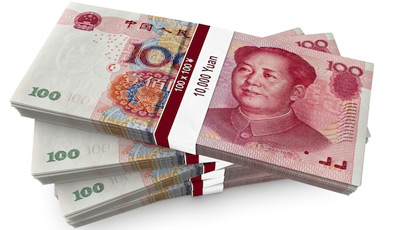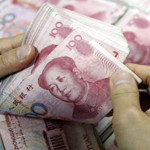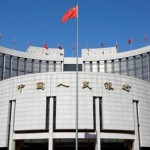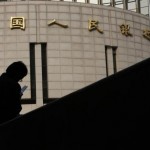China Said to Put Reserve Rule on Offshore Bank Yuan Funds

-
Officials extending effort to counter speculation against yuan
-
Premier Li underscores `no basis’ for continued yuan slide
China is stepping up efforts to counter speculative bets against the nation’s currency, through imposing reserve requirements on yuan deposits held on the mainland at offshore participant banks.
The move follows pledges by Chinese officials to maintain a stable exchange rate, and a squeeze in interbank funds in Hong Kong that saw borrowing costs in yuan in the city soar to a record last week. Premier Li Keqiang on Friday said that there was “no basis for a continued depreciation of the yuan exchange rate.” The offshore yuan advanced after news of the latest measure.
Policy makers have confronted volatility in the currency market since an August devaluation in the yuan and a move last month to link its value to a basket of other currencies, rather than the dollar. Outflows of capital, a weakening economy, slumping in the stock market and prospects for higher U.S. interest rates have undermined the yuan.
Yuan Internationalization
The market strains occur against a backdrop of China’s broader effort to internationalize the yuan. Offshore banks had previously faced a zero percent required reserve ratio on their yuan deposits on the mainland. As of Jan. 25, those funds will be subject to the same ratio as Chinese banks, according to four people familiar with the matter, who declined to be identified because the information isn’t public.
The measure may raise offshore yuan rates and increase the cost of short-selling the currency in the short term, said Zhou Hao, an economist at Commerzbank AG in Singapore. The offshore yuan market will also be adversely impacted because of uncertainties related to capital and policies, he said.
The offshore yuan gained 0.43 percent to 6.5855 per dollar in morning trading in Hong Kong. The yuan’s exchange rate has stabilized in recent days since a slide against the dollar in the first week of the year. The offshore yuan capped its biggest weekly advance since October after the central bank repeatedly bought the currency in Hong Kong.
Acknowledging Shortcomings
Ructions in China’s markets, which featured the suspension of a circuit-breaker on equities trading earlier this month after it exacerbated volatility, spurred a rare acknowledgment of shortcomings by a senior official over the weekend.
Xiao Gang, chairman of China Securities Regulatory Commission, said in a transcript of an internal meeting of the regulator that “some institutions let illegal and irregular activities ride instead of taking responsibility to stabilize the market.”
“The slumping stock market, fleeing liquidity, speedy deleveraging activities, augmented by self-defeating redemption at mutual funds and selloffs in futures, spiraled into a full-scale crisis like a domino effect,” Xiao said in remarks posted on the agency’s website on Saturday.
While the required reserve ratio varies for Chinese lenders, the biggest banks are required to lock away 17.5 percent of deposits as reserves. The PBOC started to include mainland yuan deposits of offshore participant banks in reserve requirements last year, at a zero percent rate. Yuan deposits held by clearing banks on the mainland will also be subject to the reserve ratios, the people said.
Offshore participant banks don’t include foreign central banks and other official reserve management institutions, international financial organizations and sovereign wealth funds, they said. The PBOC’s news department didn’t immediately respond to two calls and a fax seeking comment.
Source: Bloomberg – China Said to Put Reserve Rule on Offshore Bank Yuan Funds





























